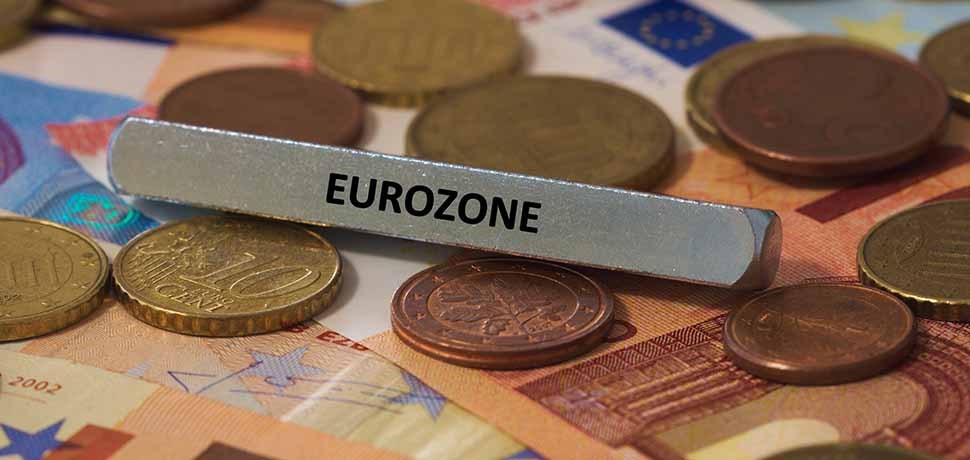
Euro zone inflation rose to 3.4% in August 2021, its highest level since September 2008. The higher-than-expected rise in headline inflation was driven higher by surging energy prices. In September 2021, the ECB raised its real GDP growth forecast to 5% in 2021 and 4.7% in 2022 due to stronger private consumption expenditure driven by a stronger decline in the savings rate and higher real income growth. Headline inflation is projected to average 2.2% in 2021, peaking at 3.1% in the Q4:2021 before declining to an average 1.7% in 2022 and 1.5% in 2023.The ECB president viewed the current inflation rise as transitory and assumed it would not change consumer behaviour. The central bank sees that energy price pressures could outlast other inflationary factors due to Europe’s energy transition. Europe is currently facing an energy crisis with rapidly increasing gas, coal, oil, and electricity prices. The gas supply shortage is becoming problematic with gas storage below normal ahead of winter. Europe's increasingly expensive gas and electricity prices are likely to force manufacturers to reassess their production plans this winter with possible shutdowns affecting the food supply chain. European governments are trying to shield residential and small business customers from the full force of increasing energy prices on utility bills through price caps, rebates, and tax cuts. Several European governments are considering levying a windfall tax on energy providers making ‘excessive’ profits from the surging price of gas. The current energy crisis in Europe is blowing stagflationary winds through Europe. It is also increasing resistance to Europe’s Green Deal. The energy crisis is another headwind reinforcing others such as the delta variant and China’s regulatory crackdown which could force the ECB to lower its GDP forecast and rise its inflation outlook.
Conclusion
Soaring gas prices threaten to push up Europe’s winter fuel bills, hurt consumption and exacerbate a near-term spike in inflation. This is another blow for Europe just as it is recovering from the coronavirus shock. The combined effect could create stagflationary winds. It is not clear that a stagflationary environment is inevitable. It is though becoming a risk factor which capital markets are increasingly taking note of.
Record natural gas prices across Europe signal the urgent need to reduce consumption and build inventories to lower the risk of supplies running out this winter. But governments have begun to intervene to limit price rises and guarantee supply for politically sensitive groups of consumers, which threatens to frustrate the adjustment process.
Europe is short of gas and coal and if the wind does not blow, the worst-case scenario could play out resulting in widespread blackouts that force businesses and factories to shut.
The current energy crisis is increasing resistance to Europe’s Green Deal. The energy transition is still in its early phase so there is not enough renewable energy production and energy storage. Solar and wind power are now cheaper than gas or coal in much of the world, according to research group Bloomberg New Energy Finance (NEF). Renewables’ energy prices are also much less volatile. The cost of solar and wind is locked in at the time of installation, while fossil fuel prices can be affected by a multitude of factors, from drilling accidents to geopolitics. The current global energy crisis combined with the increasingly frequent severe weather events is likely to accelerate the global push towards renewable forms of energy supply.

Enoch Godongwana was named the new finance minister in August 2021. He is the seventh finance minister since 2009. The upcoming Medium-term Budget Review (MTBR) will be tabled in parliament on 4 November 2021. South Africa’s fiscal position has progressively deteriorated over the last decade with the pandemic exacerbating the deterioration in FY2021. The current state of the South African economy is unsustainable. Policy uncertainty has increased over land reform, expropriation without compensation and the national health insurance while tighter empowerment regulations loom. To aggravate this position, the ruling party now appears more fragmented than ever reducing the likelihood of urgently needed structural reform. In FY2021, civil service remuneration, social assistance payments and debt-service costs absorbed 92% of tax revenue and is expected to absorb 84% in FY2022. There has been some respite in H1:FY2022, with revenue up 45.5% and non-interest expenditure up 6.6% for the first five months year-on-year resulting in a budget deficit of R195.2bn which is R129bn lower than the same period last year. The higher tax revenues were due to a 16.4% increase in personal tax revenues, a 111.5% increase in company tax revenues boosted by mining profits from the commodity boom and a 35.3% increase in net VAT revenue. Most of the high tax revenues has been absorbed by the increased costs incurred in the latest public sector wage deal, the Social Relief of Distress grant, the Temporary Employee/Employer Relief Scheme (TERS) extension and additional capital support for SASRIA following the damage done during week 28. Recapitalisation pressure continues to build for State-Owned Companies (SOC). Eskom is the only major SOC to publish its FY2021 results, and it produced a loss of R18.9bn despite recapitalisation of R56bn in the same year. None of the other major SOCs have produced their financial results suggesting looming liabilities for the fiscus. The municipal base in South Africa is also in financial and operational crisis. Only 27 of 257 municipalities received clean audits and over 25% of municipalities are in such a dire state that there is significant doubt that they will be able to continue operating as going concerns. It is unlikely that National Treasury will be able to provide material additional support for the SOCs and municipalities so they will have to raise additional funding by raising their tariffs and/or rates. Government services are under financial strain at all levels. The economy desperately needs structural economic reforms to improve the growth potential.
Conclusion
Government services are under financial strain at all levels. The windfall tax revenues from the mining companies have temporarily offset the higher government costs in 2021 but are unlikely to do so in 2022. The restatement of GDP has reduced fiscal metrics relative to GDP as GDP has been increased by 11%. This does not affect the fiscal imbalance between revenues and expenditure and does not alter the country’s debt carrying capacity and ability to service its public sector debts.
The economy desperately needs economic reforms which will improve its growth potential rather than the current transformation policies which further strangle its earnings capacity and create additional uncertainty which delays the needed fixed investment to expand infrastructure and productive capacity of the economy.
This fiscal position is one of the central impediments to economic growth, and a failure to reverse present trends would inevitably lead to a debt crisis. Fiscal consolidation means taking difficult decisions today that will affect all parts of society in the interests of building a prosperous future.